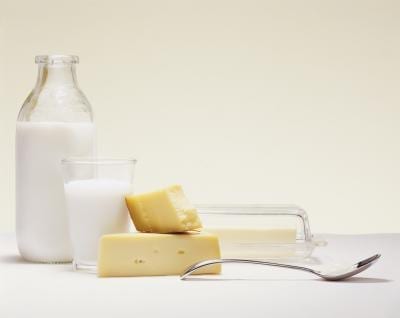While being overweight can increase your risk of developing health problems, many women don’t realize that being significantly underweight can disrupt your menstrual cycle, put you at risk for osteoporosis and may indicate that you aren’t getting enough of the vitamins and minerals your body needs to ward off disease. The key to reaching a healthy weight is to maintain a weight gain diet that focuses on slow and steady caloric increases through nutritious, calorie-dense foods.
Who Is Underweight?
Medical professionals consider anyone with a Body Mass Index of less than 18.5 to be underweight. Body Mass Index, or BMI, is a numerical comparison of your weight with your height. To calculate your BMI, square the measurement of your height in inches, then use that number to divide your weight in pounds and multiply the resulting number by 703. If your BMI is less than 18.5, you should talk to your doctor about starting a weight gain diet.
Diet Guidelines
Nutritionists recommend that women trying to gain weight aim to consume an additional 500 calories daily, which should lead to a steady gain of approximately 1 to 2 lbs.per week. MayoClinic.com advises eating five to six meals throughout the course of each day. Include exercise as part of your routine; eating frequent, calorie-rich meals combined with exercise can help you build lean muscle tissue as well as stimulating your appetite.
Recommended Foods
Focus on nutritious but calorie-dense foods, particularly complex carbohydrates, healthy fats and lean proteins. Good choices include dairy products like cheese; healthy oils like olive and canola oil; nuts, particularly peanut butter; seeds; whole grain breads, cereals and pasta; and plenty of fruits and vegetables. Drink at least 8 oz. of a calorie-containing fluid like juice or smoothies between every meal. Increase the caloric content of milk by mixing in drink powders or ground flaxseed and of yogurt or ice cream by adding granola or dried fruit.
Foods to Avoid
Just because you need to gain weight, don’t take it as a green light to eat all the fast food, snacks and sugary sweets you want. For you to stay healthy, the calories you take in should not be from foods that are highly processed or that contain large amounts of trans-fats or saturated fat. The Diet Channel website says to avoid using weight gain powders or supplements in place of simply eating calorie-dense foods. In addition, don’t drink large amounts of filling, low-calorie drinks like coffee or diet soda, and limit your caffeine intake, since caffeine can suppress your appetite.
Other Considerations
If, after adopting a weight gain diet, you still have trouble putting on pounds, consider working with a nutrition or registered dietitian to help you design meals and set realistic weight gain goals. Some women on a weight gain diet may find that their aversion to gaining more weight has a mental component that could be rooted in an eating disorder. Speak with a counselor or therapist about your feelings on food and health if you suspect this could be a problem.





